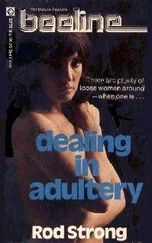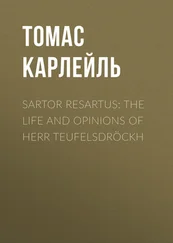Vladimir Nabokov - Strong opinions
Здесь есть возможность читать онлайн «Vladimir Nabokov - Strong opinions» весь текст электронной книги совершенно бесплатно (целиком полную версию без сокращений). В некоторых случаях можно слушать аудио, скачать через торрент в формате fb2 и присутствует краткое содержание. Город: New York, Год выпуска: 1990, Издательство: First Vintage International Edition, Жанр: Классическая проза, на английском языке. Описание произведения, (предисловие) а так же отзывы посетителей доступны на портале библиотеки ЛибКат.
- Название:Strong opinions
- Автор:
- Издательство:First Vintage International Edition
- Жанр:
- Год:1990
- Город:New York
- ISBN:нет данных
- Рейтинг книги:4 / 5. Голосов: 1
-
Избранное:Добавить в избранное
- Отзывы:
-
Ваша оценка:
- 80
- 1
- 2
- 3
- 4
- 5
Strong opinions: краткое содержание, описание и аннотация
Предлагаем к чтению аннотацию, описание, краткое содержание или предисловие (зависит от того, что написал сам автор книги «Strong opinions»). Если вы не нашли необходимую информацию о книге — напишите в комментариях, мы постараемся отыскать её.
Strong opinions — читать онлайн бесплатно полную книгу (весь текст) целиком
Ниже представлен текст книги, разбитый по страницам. Система сохранения места последней прочитанной страницы, позволяет с удобством читать онлайн бесплатно книгу «Strong opinions», без необходимости каждый раз заново искать на чём Вы остановились. Поставьте закладку, и сможете в любой момент перейти на страницу, на которой закончили чтение.
Интервал:
Закладка:
And so you preserved the fruit?
Yes. My tastes and disgusts have influenced my tenyearlong work on Eugene Onegin. In translating its 5500 lines into English I had to decide between rhyme and reason — and I chose reason. My only ambition has been to provide a crib, a pony, an absolutely literal translation of the thing, with copious and pedantic notes whose bulk far exceeds the text of the poem. Only a paraphrase «reads well»; my translation does not; it is honest and clumsy, ponderous and slavishly faithful. I have several notes to every stanza (of which there are more than 4UU, counting the variants). This commentary contains a discussion of the original melody and a complete explication of the text.
Do you like being interviewed?
Well, the luxury of speaking on one theme — oneself — is a sensation not to be despised. But the result is sometimes puzzling. Recently the Paris paper Candide had me spout wild nonsense in an idiotic setting. But I have also often met with considerable fair play. Thus Esquire printed all my corrections to the account of an interview that I found full of errors. Gossip writers are harder to keep track of, and they are apt to be very careless. Leonard Lyons made me explain why I let my wife handle motion picture transactions by the absurd and tasteless remark: «Anyone who can handle a butcher can handle a producer».
2
In midJuly, 1962, Peter DuvalSmith and Christopher Burstall came for a BBC television interview to Zermatt where I happened to be collecting that summer. The lepidoptera lived up to the occasion, so did the weather. My visitors and their crew had never paid much attention to those insects and I was touched and flattered by the childish wonderment with which they viewed the crowds of butterflies imbibing moisture on brookside mud at various spots of the mountain trail. Pictures were taken of the swarms that arose at my passage, and other hours of the day were devoted to the reproduction of the interview proper. It eventually appeared on the Bookstand program and was published in The Listener (November 22, 1962). I have mislaid the cards on which I had written my answers. I suspect that the published text was taken straight from the tape for it teems with inaccuracies. These I have tried to weed out ten years later but was forced to strike out a few sentences here and there when memory refused to restore the sense flawed by defective or improperly mended speech.
The poem I quote (with metrical accents added) will be found translated into English in Chapter Two of The Gift, G. P. Putnam's Sons, New York, 1963.
Would you ever go back to Russia:
I will never go back, for the simple reason that all the Russia I need is always with me: literature, language, and my own Russian childhood. I will never return. I will never surrender. And anyway, the grotesque shadow of a police state will not be dispelled in my lifetime. I don't think they know my works there — oh, perhaps a number of readers exist there in my special secret service, but let us not forget that Russia has grown tremendously provincial during these forty years, apart from the fact that people there are told what to read, what to think. In America Fm happier than in any other country. It is in America that I found my best readers, minds that are closest to mine. I feel intellectually at home in America. It is a second home in the true sense of the word.
You're a professional lepidopterist?
Yes, I’m interested in the classification, variation, evolution, structure, distribution, habits, of lepidoptera: this sounds very grand, but actually Tm an expert in only a very small group of butterflies. I have contributed several works on butterflies to the various scientific journals — but I want to repeat that my interest in butterflies is exclusively scientific
Is there any connection with your writing?
There is in a general way, because I think that in a work of art there is a kind of merging between the two things, between the precision of poetry and the excitement of pure science.
In your new novel, Pale Fire, one of the characters says that reality is neither the subject nor the object of real art, which creates its own reality. What is that reality?
Reality is a very subjective affair. I can only define it as a kind of gradual accumulation of information; and as specialization. If we take a lily, for instance, or any other kind of natural object, a lily is more real to a naturalist than it is to an ordinary person. But it is still more real to a botanist. And yet another stage of reality is reached with that botanist who is a specialist in lilies. You can get nearer and nearer, so to speak, to reality; but you never get near enough because reality is an infinite succession of steps, levels of perception, false bottoms, and hence unquenchable, unattainable. You can know more and more about one thing but you can never know everything about one thing: it's hopeless. So that we live surrounded by more or less ghostly objects — that machine, there, for instance. It's a complete ghost to me — I don't understand a thing about it and, well, it's a mystery to me, as much of a mystery as it would be to Lord Byron.
You say that reality is an intensely subjective matter, but in your books tt seems to me that you seem to take an almost perverse delight in literary deception.
The fake move in a chess problem, the illusion of a solution or the conjuror's magic: I used to be a little conjuror when I was a boy. I loved doing simple tricks — turning water into wine, that kind of thing; but I think I'm in good company because all art is deception and so is nature; all is deception in that good cheat, from the insect that mimics a leaf to the popular enticements of procreation. Do you know how poetry started? I always think that it started when a cave boy came running back to the cave, through the tall grass, shouting as he ran, «Wolf, wolf», and there was no wolf. His baboonlike parents, great sticklers for the truth, gave him a hiding, no doubt, but poetry had been born — the tall story had been born in the tall grass.
You talk about games of deception, like chess and conjuring. Are you, in fact, fond of them yourself?
I am fond of chess hut deception in chess, as in art, is only part of the game; it's part of the combination, part of the delightful possibilities, illusions, vistas of thought, which can be false vistas, perhaps. I think a good combination should always contain a certain element of deception.
You spoke about conjuring in Russia, as a child, and one remembers that some of the most intense passages in a number of your books are concerned with the memories of your lost childhood. What is the importance of memory to you?
Memory is, really, in itself, a tool, one of the many tools that an artist uses; and some recollections, perhaps intellectual rather than emotional, are very brittle and sometimes apt to lose the flavor of reality when they are immersed by the novelist in his book, when they are given away to characters.
Do you mean that you lose the sense of a memory once you have written it down?
Sometimes, but that only refers to a certain type of intellectual memory. But, for instance — oh, I don't know, the freshness of the flowers being arranged by the undergardener in the cool drawingroom of our country house, as ^ was running downstairs with my butterfly net on a summer day half a century ago: that kind of thing is absolutely permanent, immortal, it can never change, no matter how many times I farm it out to my characters, it is always there with me; there's the red sand, the white garden bench, the black fir trees, everything, a permanent possession. I think it is all a matter of love: the more you love a memory, the stronger and stranger it is. I think it's natural that I have a more passionate affection for my old memories, the memories of my childhood, than I have for later ones, so that Cambridge in England or Cambridge in New England is less vivid in my mind and in my self than some kind of nook in the park on our country estate in Russia.
Читать дальшеИнтервал:
Закладка:
Похожие книги на «Strong opinions»
Представляем Вашему вниманию похожие книги на «Strong opinions» списком для выбора. Мы отобрали схожую по названию и смыслу литературу в надежде предоставить читателям больше вариантов отыскать новые, интересные, ещё непрочитанные произведения.
Обсуждение, отзывы о книге «Strong opinions» и просто собственные мнения читателей. Оставьте ваши комментарии, напишите, что Вы думаете о произведении, его смысле или главных героях. Укажите что конкретно понравилось, а что нет, и почему Вы так считаете.










